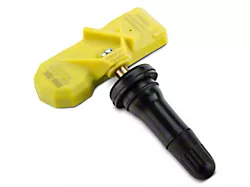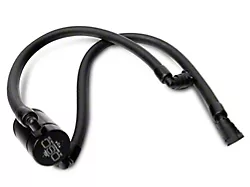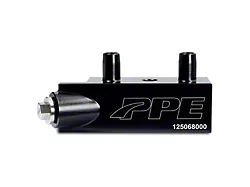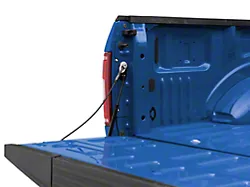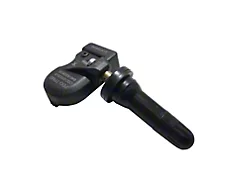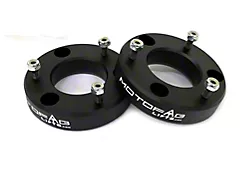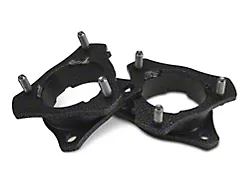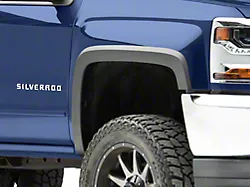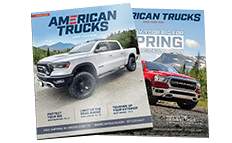
How to Install Rough Country 1.5-2 in. Leveling Torsion Bar Keys on your Ram
Installation Time
2 hours
Tools Required
- Floor jack
- Heavy duty jack stands
- Safety glasses
- Wheel chocks
- Ball Joint Remover like OTC7249
- Impact gun
- 18 mm socket
- 21 mm socket
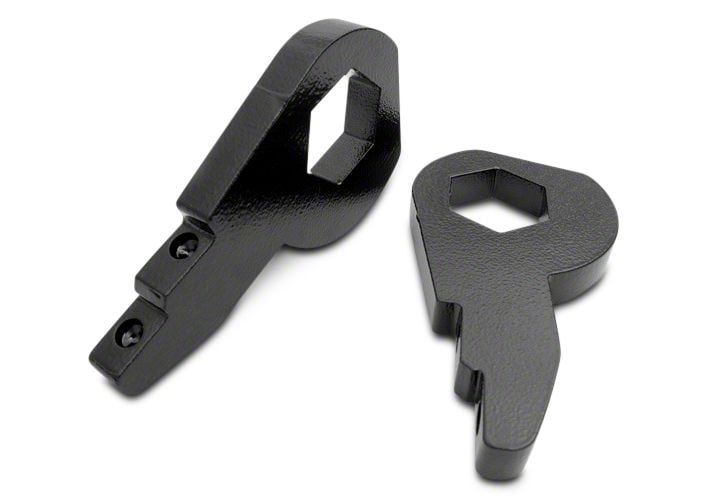
Shop Parts in this Guide
FRONT INSTALLATION INSTRUCTIONS
1. Place the vehicle in neutral. Raise the front of the vehicle with a jack to slightly raise the tires of the ground and support the frame with jack stands beneath each frame rail behind the lower control arms. Installation is done one side at a time, starting with the driver side. The torsion bar adjusters are under the cab of the vehicle at the rearward end of the torsion bars.
2. Measure or make a note of how much thread is remaining on the torsion bar adjuster bolt. You will reset the bars at this same location with the new adjusters. See Photo 1.
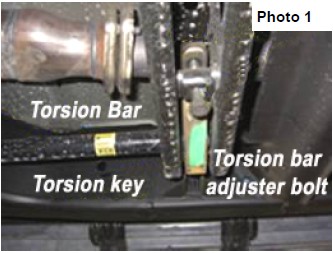
3. Use extreme caution when loading and unloading the torsion bars; there is a tremendous amount of energy stored in them. Keep your hands and body clear of the adjuster arm assembly and the puller tool in case anything slips or breaks. Note: Because of the extreme loads generated by the torsion bars on these vehicles, a standard tow-jaw puller may bend the “lips” of the cross member and may pop out of place. For best results use a c-clamp type puller tool. If you cannot find one locally, this tool (J-22517-C) is available from Kent Moore Tools in Roseville, Michigan (800-345-2233) or a Ball Joint Remover like OTC7249 can be used.
4. On the driver side, using a torsion bar removal tool, remove the stock torsion bar adjuster by loading the torsion bar using the tool and removing the bolt and nut block. Slide the torsion bar forward allowing the OE torsion key to fall out. See Photo 2.
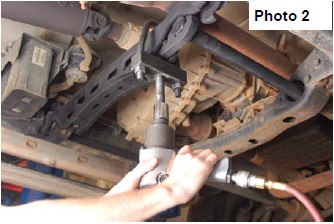
5. Install the new torsion bar adjuster using the torsion bar tool as shown in Photo 3. Reinstall the threaded block and adjuster bolt.
6. Repeat steps for passenger side. Making sure the driver and passenger side torsion bar adjuster bolts are adjusted the same amount. Fine-tuning is done in a later step.
7. Remove the factory shock absorbers and discard if new shock absorbers were purchased. If purchased; install new shock absorbers with factory hardware.
8. Jack up the front of the vehicle and remove the jack stands. Lower the vehicle to the ground to where the torsion bars are supporting the weight of the vehicle.
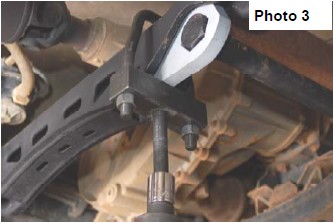
POST INSTALLATION INSTRUCTIONS
After the torsion bar adjusters have been installed and tightened to the factory measurement taken in step #2. additional adjustment may need to be performed to level the vehicle. This is done by either tightening or loosening the torsion bar adjuster bolts. Use a floor jack to support the side of the vehicle that is being adjusted, raising the tires slightly of the ground and only adjusting the bolt 1-2 turns at a time to ensure the leveling of the truck. After adjustment lower the vehicle to the ground and recheck for level. This may take several attempts. As with any lift installed, adjustment of the front headlights is required after installation. Note – the air dam on the front may need to be trimmed for additional clearance, depending on the tire size.
A front-end alignment should ALWAYS be checked after installing ANY vehicle suspension lift. This kit typically requires a slight toe-in adjustment. Record the ride height measurement at the time of alignment. If, in the future the torsion bars settle excessively, alignment can be restored by adjusting-up the bars to their original ride height.
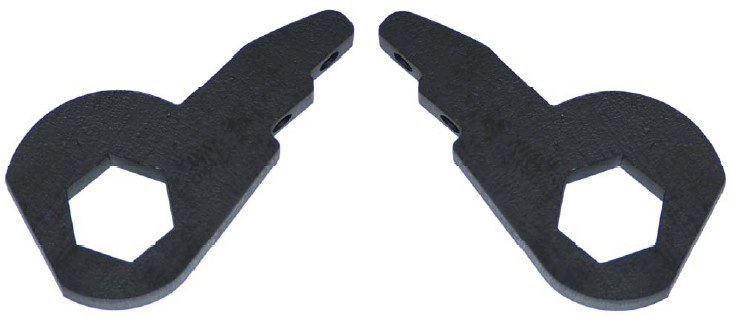
Thank You for choosing Rough Country for your suspension needs.
